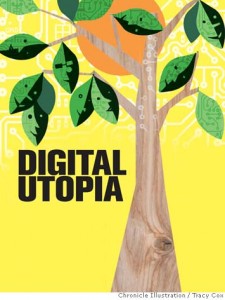Linguistic Profiling
Linguistic profiling is a VOICE based assessment. It is similar to racial profiling in that it uses cues to determine ethnicity and gender (and sometimes sexual orientation). Unlike racial profiling, linguistic profiling uses vocal cues rather than physical cues. It brings a race division through hegemonic principals in the virtual world, creating the “us” versus “them” mentality. For example, in telephone conversations with financial institutions, if a caller sounds Black or Mexican, these institutions may refuse to extend services to the caller. In the virtual gaming world, where many gamers may want their personal information to stay private, linguistic profiling discloses our gender, race, and other information through our voice and vocal mannerisms. Moreover, during LIVE GAMING, racial and gender inequality are common based on how a gamer sounds, determining the atmosphere of the game space:
For example, we see this with Conscious Daughters’ gaming:
MissUnique: Hey BizzyBoy, what do you think of girl gamers?
BizzyBoy: Hate em! They suck.
(Other male gamers in session begin laughing)
BigState88: Your score proves it. Look at your K/D.
(KD refers to the kill to death ratio within a game. MissUnique’s KD was 0 kills and 8 deaths)
MissUnique: Well I’m not playing for a purpose. I want guys like you to pay more attention to women and…
(BizzyBoy cuts MissUnique off and begins talking)
BizzyBoy: Oh shut the fuck up.
BigState88: Mute her ass. Like I’m getting ready to.
BizzyBoy: Yeah I’m about to…
(Collective Organizing, Individual Resistance, or Asshole Griefers? An Ethnographic Analysis of Women of Color In Xbox Live)
John Scalzi stated that “‘dudes’ as the intended audience [for gaming] as a metaphor for explaining how race and gender confer automatic, un-asked for, MECHANICAL advantages of players who are lucky enough to be born white and male.” The key word here is mechanical. In live gaming, hegemony and misogyny come to surface through vocalization. Race and gender separation become virtual and auditory entities as opposed to the physical manifestation. When female or other minority voices appear on live gaming: it’s no longer “us” because “them” has interrupted our white, male, and heterosexual world. The virtual world becomes a space unwelcome to female and minority gamers. The hegemonic principals of the virtual world are solely dependent on linguistic profiling.
(Queer Female of Color: The Highest Difficulty Setting There Is? Gaming Rhetoric as Gender Capital)















